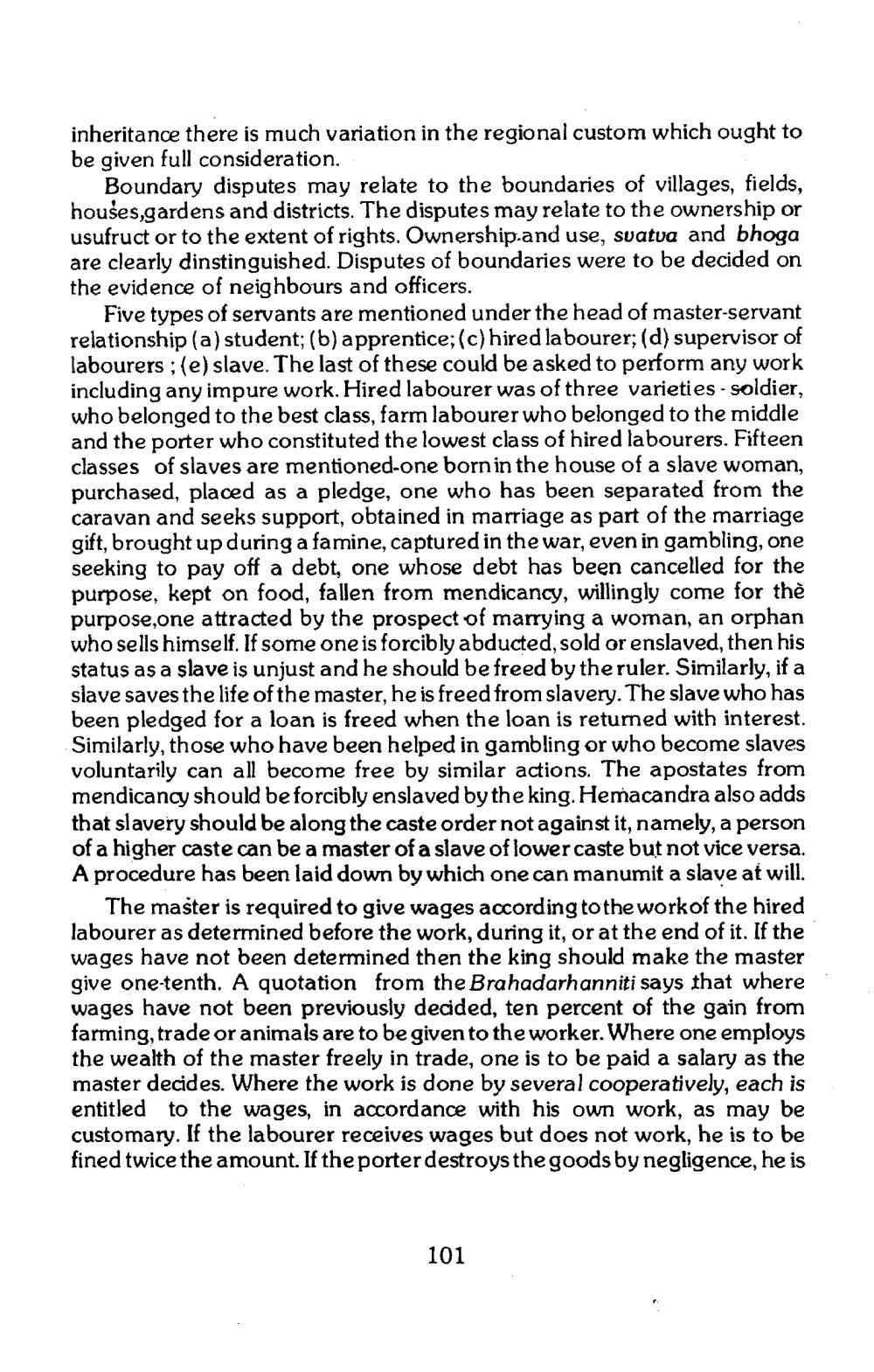________________
inheritance there is much variation in the regional custom which ought to be given full consideration.
Boundary disputes may relate to the boundaries of villages, fields, houses,gardens and districts. The disputes may relate to the ownership or usufruct or to the extent of rights. Ownership.and use, svatva and bhoga are clearly dinstinguished. Disputes of boundaries were to be decided on the evidence of neighbours and officers.
Five types of servants are mentioned under the head of master-servant relationship (a) student; (b) apprentice; (c) hired labourer; (d) supervisor of labourers ; (e) slave. The last of these could be asked to perform any work including any impure work. Hired labourer was of three varieties - soldier, who belonged to the best class, farm labourer who belonged to the middle
nd the porter who constituted the lowest class of hired labourers. Fifteen classes of slaves are mentioned-one born in the house of a slave woman, purchased, placed as a pledge, one who has been separated from the caravan and seeks support, obtained in marriage as part of the marriage gift, brought up during a famine, captured in the war, even in gambling, one seeking to pay off a debt, one whose debt has been cancelled for the
kept on food, fallen from mendicancy, willingly come for the purpose,one attracted by the prospect of marrying a woman, an orphan who sells himself. If some one is forcibly abducted, sold or enslaved, then his status as a slave is unjust and he should be freed by the ruler. Similarly, if a slave saves the life of the master, he is freed from slavery. The slave who has
ledged for a loan is freed when the loan is returned with interest Similarly, those who have been helped in gambling or who become slaves voluntarily can all become free by similar actions. The apostates from mendicancy should be forcibly enslaved by the king. Hemacandra also adds that slavery should be along the caste order not against it, namely, a person of a higher caste can be a master of a slave of lower caste but not vice versa. A procedure has been laid down by which one can manumit a slave at will.
The master is required to give wages according to the workof the hired labourer as determined before the work, during it, or at the end of it. If the wages have not been determined then the king should make the master give one-tenth. A quotation from the Brahadarhanniti says that where wages have not been previously decided, ten percent of the gain from farming, trade or animals are to be given to the worker. Where one employs the wealth of the master freely in trade, one is to be paid a salary as the master decides. Where the work is done by several cooperatively, each is entitled to the wages, in accordance with his own work, as may be customary. If the labourer receives wages but does not work, he is to be fined twice the amount. If the porter destroys the goods by negligence, he is
101




